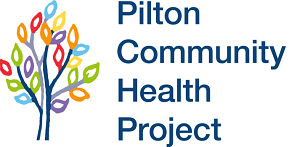Improved productivity and an enhanced company reputation have been highlighted as key benefits of organisations implementing the Living Wage according to an independent report.
The report – Wider Payment of the Living Wage in Scotland – highlights that increased productivity is also likely to outweigh the higher wage for many firms with increased pay creating a ‘feel good factor’ in the workplace.
Reduced absenteeism and reduced staff turnover have also been outlined as potential benefits by the report, which has been published ahead of tomorrow’s second meeting of the Fair Work Convention.
Cabinet Secretary for Fair Work, Skills and Training Roseanna Cunningham welcomed the report and said: “This is a fascinating report which, on the whole, offers a very positive outlook on the benefits of paying the Living Wage.
“As well as the more obvious benefits to individuals receiving higher pay, I hope the findings on improved rates of absenteeism and better productivity help convince employers, not already on board with the Living Wage, that it could be a very positive step for their business.
“A number of respondents also mentioned the reputational benefits of being a Living Wage employer, including reinforcing their positioning as ethical and socially responsible businesses.
“The Scottish Government is committed to fairness, supporting those on the lowest incomes, and we recognise the real difference the Living Wage can make to the people of Scotland. We have been working closely with the Poverty Alliance to encourage every employer to ensure all staff receive a fair level of pay. The Fair Work Convention, which meets for the second time tomorrow, is looking a number of ways to improved workplace relations and productivity, with fair pay seen as key to their work.
“Some of Scotland’s top employers already pay the Living Wage, with Aberdeenshire beer company Brewdog, fast-becoming one of our most recognisable brands becoming the 200th accredited organisation last week.
“A KPMG report from last month showed that Scotland is most Living Wage-aware region in UK with 9 out of 10 Scots having heard of the Living Wage and a higher proportion of employees paid the Living Wage than the UK as a whole.
“But employers paying the living wage is only half the story here. The tax and benefits system needs to work smarter to make sure that people on low incomes see a greater share of any increases in pay – and we will press the UK Government to make sure this happens.”
The report ‘Wider Payment of the Living Wage in Scotland’ was carried out by Ipsos MORI and Loughborough University and can be found at: http://www.gov.scot/Publications
Among the main points highlighted:
Existing research from other countries suggests that payment of the Living Wage can improve employee wellbeing, including higher satisfaction at the workplace. However, the effects on reducing poverty are less clear, as a large proportion of the employee’s pay increase is often lost in increased taxes and reduced means-tested benefits.
A considerable body of evidence shows no significant reduction in labour demand and employment levels due to increased wage floors.
Although increased productivity is likely to outweigh the higher wage cost for many firms, this does not mean that all firms will experience increased productivity, or that it will fully cover the cost for all those that do experience it. Some employers reduce labour costs in other ways (e.g. non-wage benefits), suffer reduced profits and/or pass the costs on to consumers in the form of higher prices.
To improve the implementation process, the Scottish Living Wage employers interviewed suggested employers should:
• conduct feasibility studies to identify and deal with potential risks
• communicate openly with staff about the rationale for adopting the Living Wage
• create a clear action plan for working with sub-contractors
The Scottish Living Wage employers interviewed suggested the Scottish Government could:
• provide advice and guidance on all aspects of the implementation phase
• encourage dialogue between Living Wage employers and those considering it
• raise awareness among recruitment agencies about the Living Wage
• provide more information and evidence on the benefits of the Living Wage
• provide financial incentives to help small businesses implement the Living Wage
• improve communications on, and engagement in, setting the level of the Living Wage
In the US, evidence on additional contracting costs due to enforcing a Living Wage among public contractors suggests at most very modest effects. In the UK – which, unlike the US, is unable to make payment of the living wage a mandatory requirement – a number of public bodies have nevertheless successfully included living wage considerations in procurement exercises. However, no satisfactory way of dealing with social care contracts has been found, due to very tight public budgets and a cost base dominated by low-paid labour.
Scottish Government contractors identified actions that could support the use of procurement to encourage implementation of the Living Wage, including:
• some form of subsidy to help offset increases in wage costs among contractors
• making use of local government and non-departmental government bodies to provide information and support
• workshops with contractors to provide information and advice on best practice
• providing robust evidence on the impacts, and advice on addressing barriers.



















